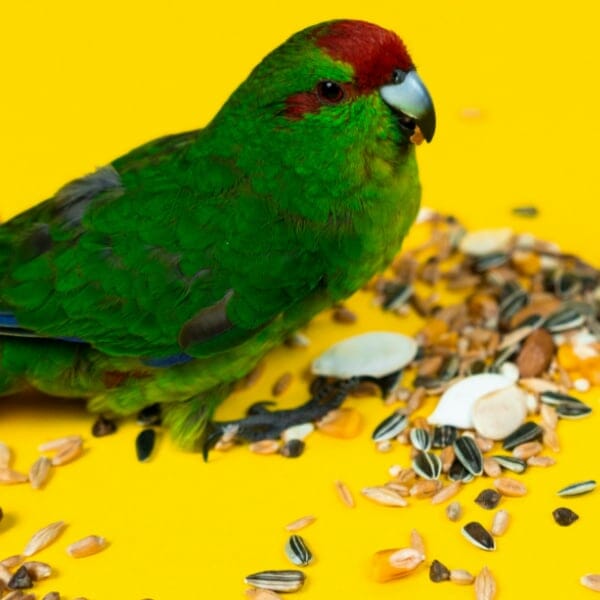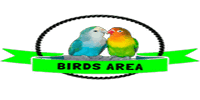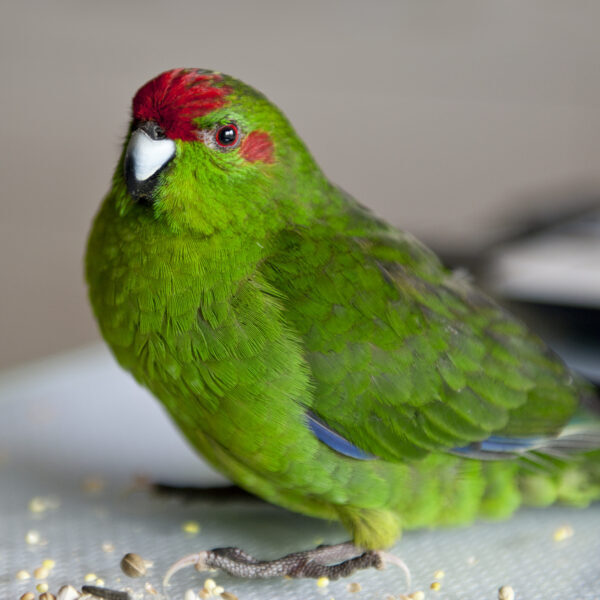Can Kakarikis Eat Mango: A Nutritional Guide for Bird Owners
Yes, Kakarikis can eat mango. This tropical fruit is safe and nutritious for them.
It provides essential vitamins and hydration. Kakarikis, known for their playful nature, thrive on a varied diet. Including fruits like mango can enhance their nutrition. Mangoes are rich in vitamins A and C, which support their immune system. The sweet, juicy flesh also keeps them hydrated.
Offering mango as an occasional treat can add excitement to their diet. Always ensure the fruit is fresh and clean. Remove the pit and skin to avoid choking hazards. While mangoes are safe, balance is key. A diverse diet keeps Kakarikis healthy and happy. Let’s explore more about feeding mango to these delightful birds.
Introduction To Kakarikis
Kakarikis are small, colorful parrots that charm bird enthusiasts worldwide. Known for their vibrant plumage and energetic behavior, these birds make delightful pets. Understanding their characteristics and dietary needs is essential for their well-being.
General Characteristics
Kakarikis, or New Zealand parakeets, are medium-sized parrots. They usually measure about 25 cm in length. Their feathers come in bright green, with red patches on their heads and wings. These birds are known for their playful and curious nature. They enjoy exploring their surroundings and engaging with toys.
Kakarikis are also known for their agility. They can run and jump with ease. Their active nature requires a spacious cage. Providing them with a stimulating environment helps keep them happy and healthy.
Dietary Needs
Kakarikis require a balanced diet for optimal health. Fresh fruits and vegetables should make up a significant portion of their diet. They enjoy eating a variety of produce. Leafy greens, carrots, and apples are some good options.
Seeds and pellets should also be included. They provide necessary nutrients. Ensure the seeds are clean and fresh. Pellets should be of high quality. Avoid feeding them fatty or sugary foods. Clean, fresh water should always be available.
Can Kakarikis eat mango? Yes, they can. Mangoes are safe and nutritious for them. Feed mangoes in moderation, as a treat. Always remove the pit and skin. Cut the mango into small, manageable pieces. This ensures your bird can eat it safely.
Benefits Of Mango For Birds
Mangoes are a delightful treat for birds, including Kakarikis. They are not just tasty but also packed with nutrients that can boost a bird’s health. Feeding your bird mangoes can offer several benefits. Let’s explore the nutritional value and the essential vitamins and minerals found in mangoes.
Nutritional Value
Mangoes are rich in essential nutrients. These can support your bird’s overall well-being. Here is a table to highlight the nutritional value of mangoes:
| Nutrient | Amount per 100g |
|---|---|
| Calories | 60 kcal |
| Carbohydrates | 15 g |
| Fiber | 1.6 g |
| Protein | 0.8 g |
| Fat | 0.4 g |
The high carbohydrate content provides energy. The fiber aids in digestion. Though mangoes are low in protein and fat, they are still a healthy snack option.
Vitamins And Minerals
Mangoes are a great source of vitamins and minerals that can enhance your bird’s health. Here are some of the key vitamins and minerals in mangoes:
- Vitamin A: Supports eye health and immune function.
- Vitamin C: Boosts the immune system and acts as an antioxidant.
- Vitamin E: Promotes healthy skin and feathers.
- Vitamin K: Aids in blood clotting and bone health.
- Potassium: Helps in maintaining proper heart function.
- Magnesium: Supports muscle and nerve function.
Including mangoes in your bird’s diet can provide these essential nutrients. This can help in keeping your Kakariki happy and healthy.
Safe Fruits For Kakarikis
Feeding your Kakarikis a balanced diet is essential for their health. While vegetables form the core of their diet, fruits can be a delightful addition. Knowing which fruits are safe is crucial. Let’s explore some safe fruit options for your feathered friends.
Common Safe Options
Kakarikis can enjoy a variety of fruits. Apples are a good choice. Always remove the seeds. Bananas are another favorite. They are easy to serve. Blueberries are rich in antioxidants. They make a great treat. Grapes, sliced in half, are safe too. Kiwis offer vitamin C. Just peel and serve in small pieces. Mangos are also safe. They provide essential vitamins. Remember to remove the skin and pit.
Fruit Serving Tips
Always wash fruits thoroughly. Pesticides can harm your bird. Cut fruits into small, manageable pieces. This prevents choking. Serve fruits in moderation. Too much sugar is not good. Rotate different fruits. This ensures a balanced diet. Fresh is best. Avoid canned fruits. They contain added sugars. Remove any uneaten fruit. This prevents mold and bacteria.

Credit: www.youtube.com
Mango Preparation For Kakarikis
Feeding your Kakarikis a variety of fruits is essential for their health. Mango is a delicious and nutritious option. It provides vitamins and minerals that benefit your feathered friends. But preparing mango for Kakarikis requires some care. Follow these steps to ensure your bird enjoys a safe and tasty treat.
Choosing The Right Mango
Select a ripe mango for your Kakarikis. It should be slightly soft to the touch. Avoid overripe or mushy mangoes as they may have started to ferment. Check for a pleasant, sweet smell to indicate ripeness. Organic mangoes are preferable. They are free from pesticides and chemicals.
Cutting And Serving
Start by washing the mango thoroughly. This removes any dirt or residues. Peel the mango carefully. Remove all the skin and seeds. Kakarikis can only eat the flesh. Cut the mango into small, bite-sized pieces. Ensure the pieces are easy for your bird to handle. Serve the mango in a clean dish. Observe your bird to make sure it enjoys the treat.
Potential Risks Of Mango
Mangoes are delicious and nutritious, but they come with some risks for Kakarikis. It’s important to know these risks to keep your bird safe and healthy.
Allergies And Sensitivities
Like humans, Kakarikis can have allergies to certain foods. Mangoes might cause such reactions. Watch for signs like:
- Itching
- Swelling
- Difficulty breathing
If you notice any of these symptoms, stop feeding mango immediately. Consult a vet if symptoms persist.
Overfeeding Concerns
Mangoes are high in sugar. Overfeeding them can lead to health problems for Kakarikis. These can include:
- Obesity
- Diabetes
- Digestive issues
To avoid these issues, offer mangoes in moderation. A small piece once a week is enough. Balance their diet with other fruits and vegetables.
Integrating Mango Into Diet
Integrating mango into your Kakariki’s diet can be a delightful addition. Mangoes are rich in vitamins and minerals, which can benefit your bird. But it’s essential to do it properly to ensure your bird’s health.
Balanced Diet Plans
A balanced diet is crucial for Kakarikis. While mangoes are nutritious, they should not replace other foods. Fresh fruits, vegetables, seeds, and pellets should form the bulk of their diet. Mango can be an occasional treat, enhancing their nutrition without overloading on sugars.
Offer small mango pieces to your Kakariki. This ensures they get a variety without filling up on just one type of food. This way, they can enjoy the taste and benefits of mango without compromising their overall diet.
Monitoring Health
Keep an eye on your Kakariki’s health when introducing mango. Look for any signs of digestive issues or allergies. If your bird shows any negative symptoms, stop feeding mango and consult a vet.
Track their weight and energy levels regularly. Mangoes are high in sugar, and too much can lead to weight gain. Ensure that their diet remains balanced and that mango is only a small part of it.
Signs Of Nutritional Issues
Feeding your Kakariki a balanced diet is essential for their health and wellbeing. While mangoes can be a delightful treat for your bird, it’s important to watch for any signs of nutritional issues. Keeping an eye out for symptoms and knowing when to seek veterinary advice can ensure your Kakariki stays happy and healthy.
Symptoms To Watch For
Noticing early signs of nutritional issues can prevent serious health problems. Here are some symptoms to watch for:
- Feather Quality: Dull, brittle, or missing feathers may indicate a poor diet.
- Weight Loss: Unexplained weight loss can signal nutritional deficiencies.
- Behavior Changes: Lethargy or unusual aggression might be related to dietary issues.
- Beak and Claw Problems: Overgrown or fragile beaks and claws can result from nutrient imbalances.
- Droppings: Watery or discolored droppings may suggest digestive issues.
When To Consult A Vet
If you observe any of the above symptoms, it’s crucial to consult a vet. Here are situations that warrant professional advice:
- Persistent Symptoms: If symptoms continue for more than a few days.
- Severe Symptoms: Immediate vet consultation is required if symptoms are severe.
- Uncertainty: If unsure about your bird’s health, it’s best to seek veterinary advice.
By staying vigilant and providing a balanced diet, you can help prevent nutritional issues in your Kakariki.

Credit: www.reddit.com

Credit: windycityparrot.com
Frequently Asked Questions
Can Kakarikis Eat Mango?
Yes, Kakarikis can eat mango. Mango is safe and nutritious for them. Offer it in moderation.
Is Mango Safe For Kakarikis?
Yes, mango is safe for Kakarikis. It contains vitamins and nutrients. Ensure to remove the pit and skin.
How Often Can Kakarikis Have Mango?
Kakarikis can have mango occasionally. Offer it once or twice a week. Too much fruit can lead to obesity.
What Fruits Are Safe For Kakarikis?
Kakarikis can eat apples, berries, and bananas. Avoid feeding them avocado, which is toxic.
Conclusion
Mangoes can be a delightful treat for your Kakariki. They offer essential vitamins and minerals. Always serve mangoes in moderation. Remove the pit and peel before offering them. Too much fruit may lead to digestive issues. Balance their diet with seeds, vegetables, and other fruits.
Always observe your bird’s reaction. Each Kakariki is different. Consult with your vet if unsure. A varied diet ensures a happy and healthy pet. Enjoy bonding over shared treats.
Hello Dear, I'm Poli Kolymnia, owner of many birds (including budgies).
With a deep passion for these feathered companions, I'm here to share my expertise and extensive knowledge on birds care.
My articles cover essential topics like diet, housing, care, and health, providing practical tips to help you create a happy and thriving environment for your birds.



